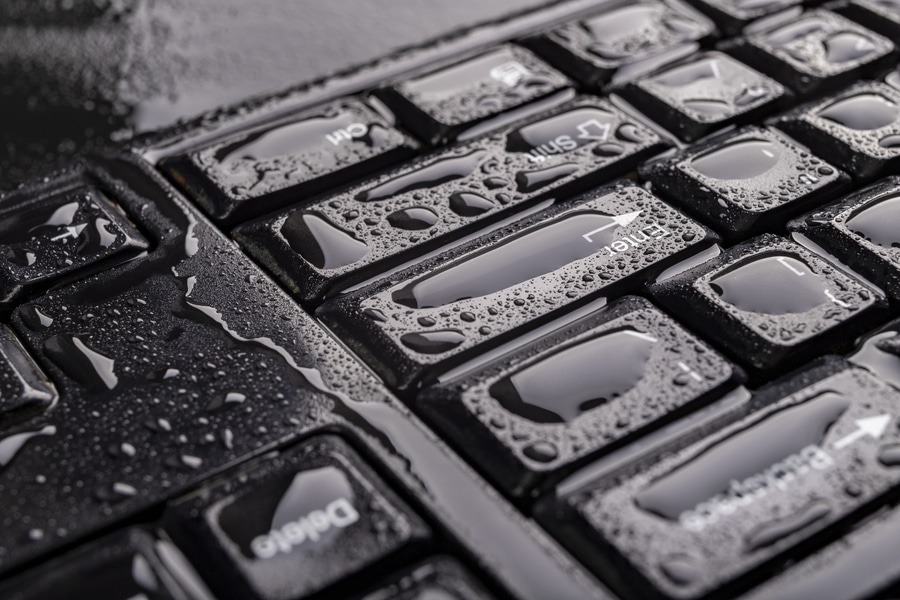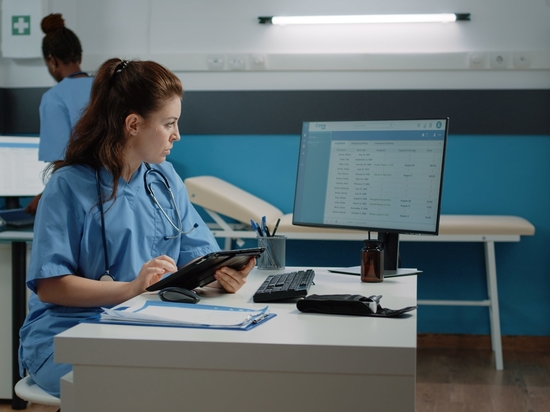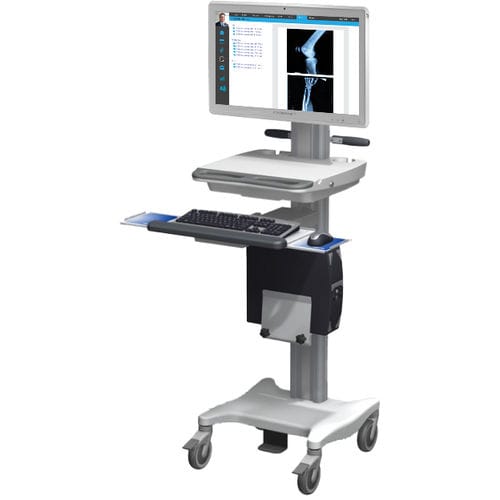
#Industry News
The Impact of Humidity on Medical Computers: How to Protect Your Device
Learn how humidity can affect your medical computers, and how to protect against it.
Everyone knows what an unpleasant humid day feels like, when the air seems to cling to your skin and the heat just won't go away. When high amounts of water vapor are present in the air, there's a good chance the weather will feel far hotter than it actually is. But personal discomfort isn't the only issue that high humidity causes.
While most fear accidentally spilling liquids on their computer or monitor, high levels of humidity can be equally problematic, a constant and grinding threat that slowly damages an electronic device's components.
What Is Humidity, and Why Is High Amounts of It So Bad?
Humidity is a measure of how much water vapor is in the air. High temperatures and high humidity typically go hand in hand, as water evaporates from its liquid form into a gas. We "feel" humidity as a higher temperature, as evaporated water makes it more difficult for the sweat we use to cool down to evaporate as well.
Humidity may be just uncomfortable for people, but it can wreak havoc on electronic devices. A high level of humidity leads to condensation on electronic components, leading to electrical shorts and corrosion. A high priority for any computer owner should be preventing humidity from occurring inside a computer's casing. This is especially critical for any medical-grade computer managing life-sustaining equipment.
How To Protect Electronics From High Humidity
There are several steps that computer manufacturers take to protect against high humidity, such as:
Ingress Protection (IP) Rating: a high IP rating protects against water of all kinds, both water jets and vapor. The higher the rating, the better the device’s protection from humidity, with a rating of IP65 being the industry standard for healthcare.
Gaskets and Seals: gaskets and seals, typically made of rubber to give them a degree of flexibility, allow the computer to have openings while preventing humidity from getting inside the casing.
Materials Selection: Choosing the right moisture-resistant materials for both the computer’s casing and internal components is critical for preventing corrosion. These materials are sometimes used as potting and are poured or injected into the case to fill in cavities and empty spaces.
Conformal Coating: This is a protective layer of material applied directly to the circuit board to protect it from moisture, as well as dust and chemicals. These conformal coatings are typically acrylic, urethane, or silicone.
Touch Screens For Wet and Humid Environments
Touchscreens are a popular fixture as user interfaces on both all-in-one medical PCs and tablets. However, the capacitive touchscreens that these devices use are vulnerable to interference from water, which can both damage the electronics under the screen and generate false inputs on its surface
.
False inputs on your smartphone while scrolling TikTok is one thing. A false input on a tablet or computer connected to a patient’s medical device is entirely another. Therefore, touch screens can integrate features to counter this threat, such as:
Customized Touch Algorithms: The parameters for a touch screen, such as sensitivity, touch area size, and multi-touch capabilities, can all be adjusted. This lets the end-user adjust the device for different operating conditions. If they don’t expect to use the multi-touch function, for instance, they can shut it off and prevent false inputs caused by water or humidity.
Water Rejection: Water droplets and moisture have a particular type of input on a touch screen that algorithms can be optimized to ignore.
Water-Repellent Coatings: A hydrophobic coating can be applied over the touch screen’s surface to repel water, preventing it from remaining or collecting on its surface.
Closing Thoughts
Humidity can cause severe damage to computers if it isn’t accounted for. Fortunately, with the right design features internally and for the computer’s touch screen, you can continue to enjoy and rely upon your medical PC or tablet no matter how humid it gets.
If you’d like to learn more about medical computers designed to operate in wet or humid environments, contact the team at Cybernet Manufacturing. We’d be happy to discuss further how our products are engineered to work in even the harshest environments.





